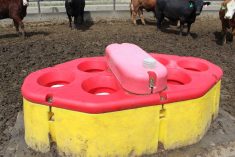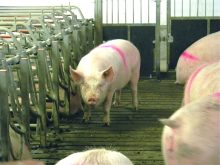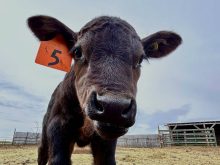When sows have significant illnesses during key stages of pregnancy, their immune response may negatively affect developing piglets, making them less productive on the farm.
New research from the University of Illinois shows that when those piglets, especially males, experience a second stressor in early life, they are at higher risk of neurodevelopmental and other neurological anomalies. That puts them at an even greater disadvantage in production settings.
“With more information about maternal illness, what we call maternal immune activation, we can make better decisions about how to handle these types of immune challenges within animal production settings,” says Marissa Keever-Keigher, doctoral student in the Department of Animal Sciences at Illinois and lead researcher on the study.
Read Also

Clean seed garlic promises bigger bulbs and higher returns for growers
Ontario garlic trials show clean seed outshines conventional yields, with stronger drought resilience, reduced virus risk and greater economic outcomes.
Studying brain development in the domestic pig is relevant on the farm, of course, but pig studies can also inform human neurodevelopmental research. That’s because the pig’s development, genetics and brain structure are very similar to that of humans.
In previous pig studies on the effects of maternal immune activation, Keever-Keigher and her colleagues showed important genetic changes occur in the piglet amygdala, a brain structure that plays an important role in learning, social behaviour and stress response in humans and pigs.
The researchers also knew from primate and rodent studies that a second immune challenge, known as a double hit, can further disrupt typical brain development in young animals.
To test the double hit hypothesis in pigs, the team chose weaning as the second challenge. Weaning is physically and emotionally stressful for piglets and can elicit an immune response.
The researchers looked at a combination of factors for piglets in the study: whether or not their mothers were infected with porcine reproductive and respiratory syndrome virus (PRRSV) during gestation, and whether or not they were weaned at 21 days of age, the typical age in production settings.
They also noted the sex of the piglets, as their earlier research indicated male piglets showed more changes in the amygdala as a result of maternal illness.
“Using high-throughput sequencing technologies, we were able to monitor the levels of more than 16,000 genes in the pigs. We uncovered more than 100 genes and molecular pathways affected by either maternal immune activation, weaning, sex or a combination of factors in the amygdala on day 22 for all piglets.”
As in the scientists’ previous work, the double hit affected male piglets more than females, with greater dysregulation of genes in the amygdala. The researchers found evidence of more protective pathways in female brains, giving them an advantage in handling stressful events.
“The lesson for swine producers, I think, is to be really mindful of stressful conditions in the production cycle, and try to mitigate those as much as we can in order to create the most productive and healthy livestock animals and benefit producers’ bottom lines,” Keever-Keigher says.














